How to Get Rid of Driver Restore Windows 10
Driver Restore removal instructions
What is Driver Restore?
Driver Restore claims to maximize the computer performance by keeping all drivers up-to-date. This functionality might seem legitimate and useful, however, Driver Restore is distributed as a third party app and is, thus, classed as a potentially unwanted program (PUP).
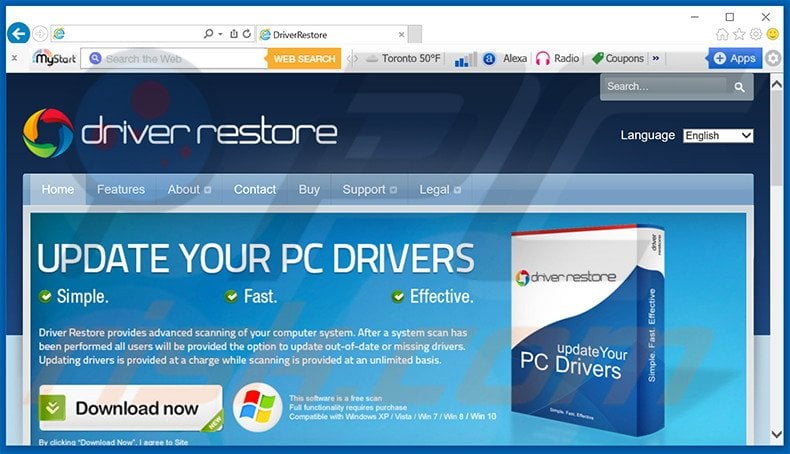
Potentially unwanted programs often track Internet browsing activity and deliver intrusive content-concealing advertisements. Note that collected information (IP addresses, geo-location, website URLs visited, pages viewed, search queries, etc.) might contain personally identifiable details. Furthermore, gathered data is shared with third party companies who are likely to misuse personal details to generate revenue. This behavior can lead to serious privacy issues or even identity theft. In addition, banner, search, pop-up, interstitial, full-page, in-text, transitional, and other similar intrusive advertisements, often redirect users to malicious websites containing infectious content - clicking them risks to further adware or malware infections. Although Driver Restore poses no direct threat to users' privacy/Internet browsing safety, it is categorized as a potentially unwanted program, since it might diminish computer performance. For these reasons, you should consider uninstalling it.
Research shows that there are hundreds of bogus applications that falsely claim to enhance the Internet browsing experience. By giving fake promises, these apps attempt to trick users to install. After successfully infiltrating the system, however, they provide no real value. Bogus applications cause unwanted browser redirects and track Internet browsing activity, thereby putting users' privacy and Internet browsing safety at risk.
How did Driver Restore install on my computer?
Driver Restore is often distributed as a 'bundle' with other software. The developers know that many users do not express enough caution when downloading and installing software. Therefore, they conceal potentially unwanted programs within the 'Custom/Advanced' download or installation settings. Many users skip this section, often leading to inadvertent installation of PUPs. In doing so, they expose their systems to risk of infection and compromise their privacy.
How to avoid installation of potentially unwanted applications?
To prevent installation of potentially unwanted programs, be attentive during the download and installation processes. Closely analyze each step using the 'Custom' or 'Advanced' settings. Furthermore, decline all offers to download or install additional applications, and opt-out of those already included, since it is highly probably that bundled software will be malicious.
Deceptive free software installer distributing Driver Restore PUP:
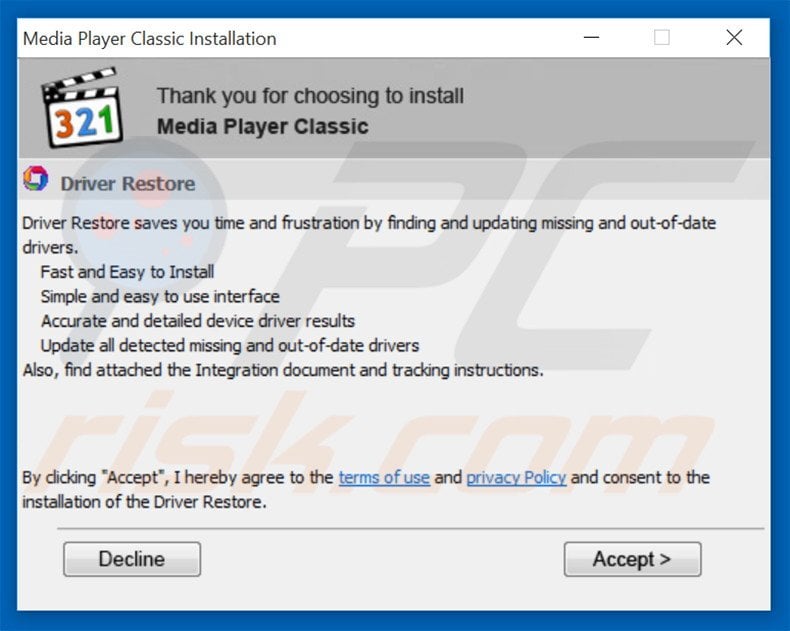
Screenshot of the Driver Restore application:
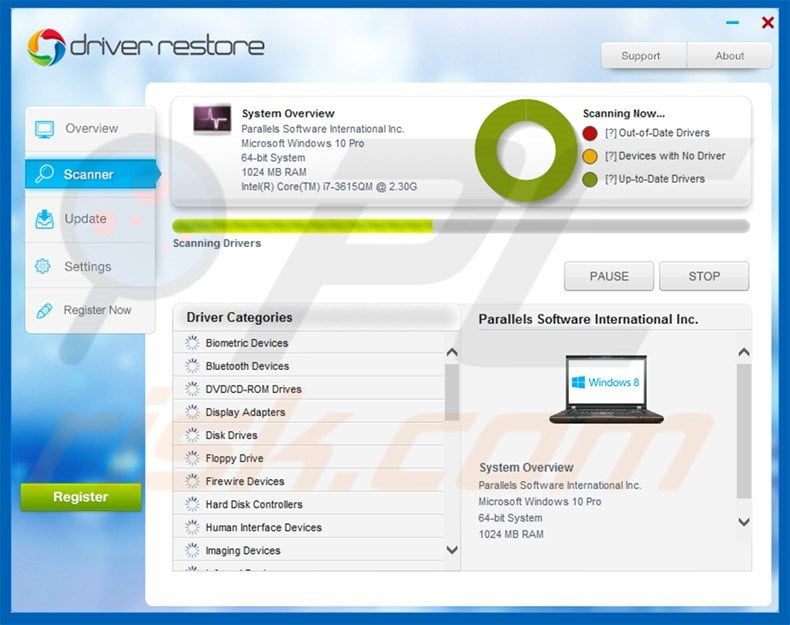
Driver Restore application detected as potentially unwanted application by antivirus vendors:
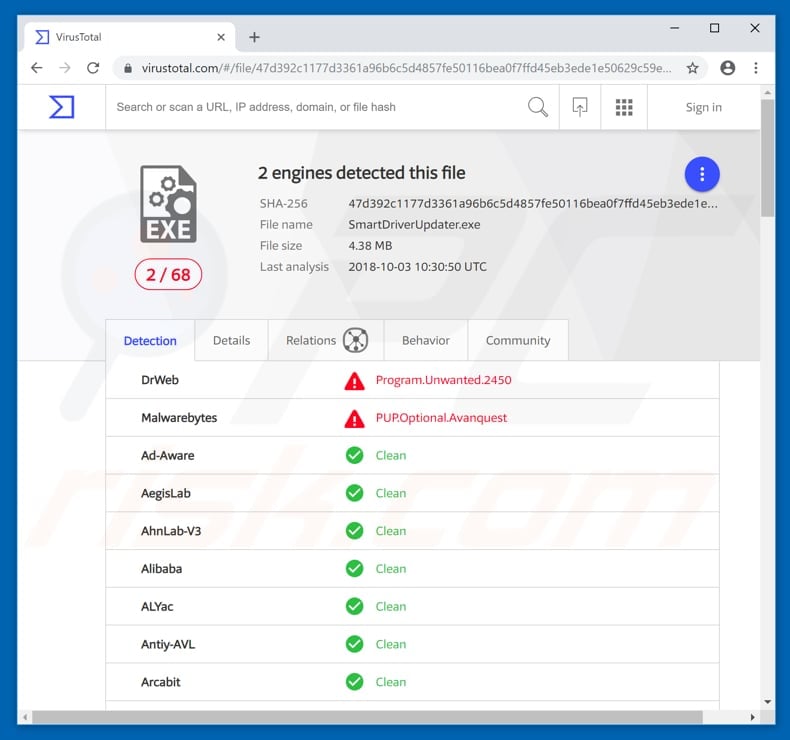
Instant automatic malware removal: Manual threat removal might be a lengthy and complicated process that requires advanced computer skills. Malwarebytes is a professional automatic malware removal tool that is recommended to get rid of malware. Download it by clicking the button below:
▼ DOWNLOAD Malwarebytes By downloading any software listed on this website you agree to our Privacy Policy and Terms of Use. To use full-featured product, you have to purchase a license for Combo Cleaner. 7 days free trial available. Combo Cleaner is owned and operated by Rcs Lt, the parent company of PCRisk.com read more.
Quick menu:
- What is Driver Restore?
- STEP 1. Uninstall Driver Restore application using Control Panel.
- STEP 2. Remove unwanted add-ons from Internet Explorer.
- STEP 3. Remove malicious plug-ins from Google Chrome.
- STEP 4. Remove rogue add-ons from Mozilla Firefox.
- STEP 5. Remove unwanted extension from Safari.
- STEP 6. Remove rogue plug-ins from Microsoft Edge.
Driver Restore PUP removal:
Windows 11 users:
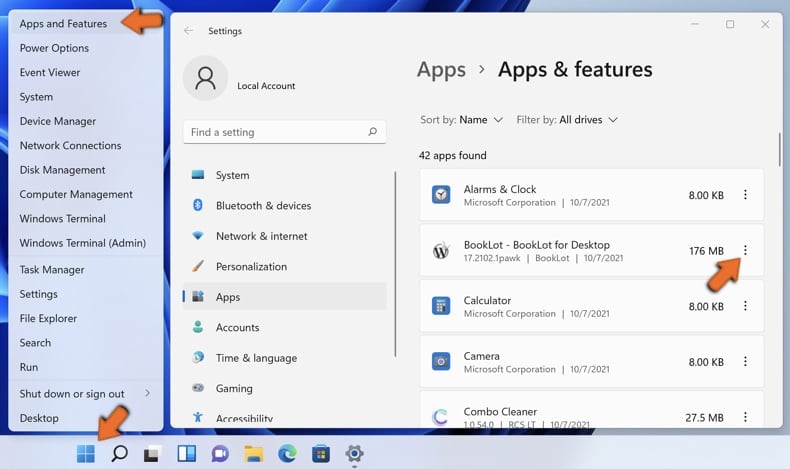
Right-click on the Start icon, select Apps and Features . In the opened window search for the application you want to uninstall, after locating it, click on the three vertical dots and select Uninstall .
Windows 10 users:
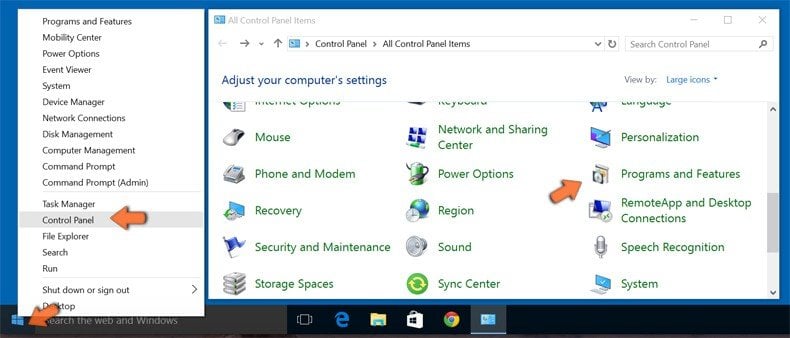
Right-click in the lower left corner of the screen, in the Quick Access Menu select Control Panel . In the opened window choose Programs and Features .
Windows 7 users:
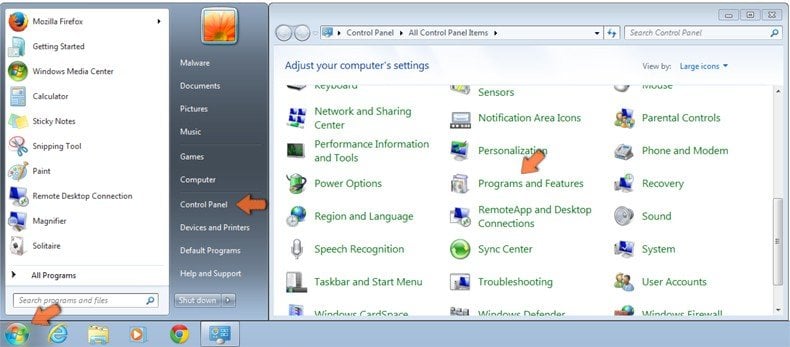
Click Start (Windows Logo at the bottom left corner of your desktop), choose Control Panel . Locate Programs and click Uninstall a program .
macOS (OSX) users:
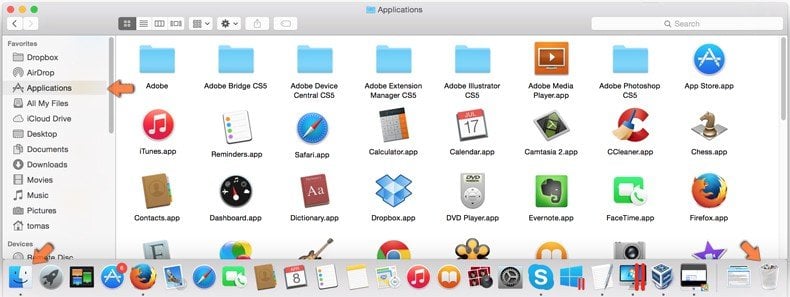
Click Finder , in the opened screen select Applications . Drag the app from the Applications folder to the Trash (located in your Dock), then right click the Trash icon and select Empty Trash .
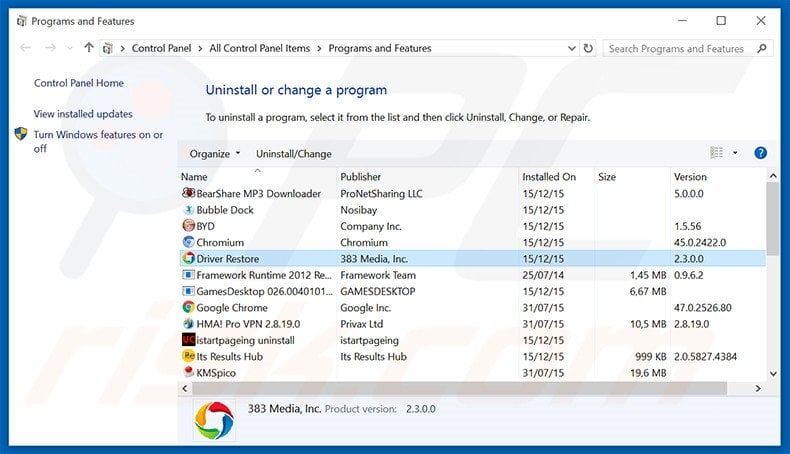
In the uninstall programs window, look for "Driver Restore", select this entry and click "Uninstall" or "Remove".
After uninstalling the potentially unwanted program, scan your computer for any remaining unwanted components or possible malware infections. To scan your computer, use recommended malware removal software.
Remove Driver Restore PUP from Internet browsers:
At time of research, Driver Restore did not install its browser plug-ins on Internet Explorer, Google Chrome, or Mozilla Firefox, however, it was bundled with other adware. Therefore, you are advised to remove all potentially unwanted browser add-ons from your Internet browsers.
Video showing how to remove potentially unwanted browser add-ons:
 Remove malicious add-ons from Internet Explorer:
Remove malicious add-ons from Internet Explorer:
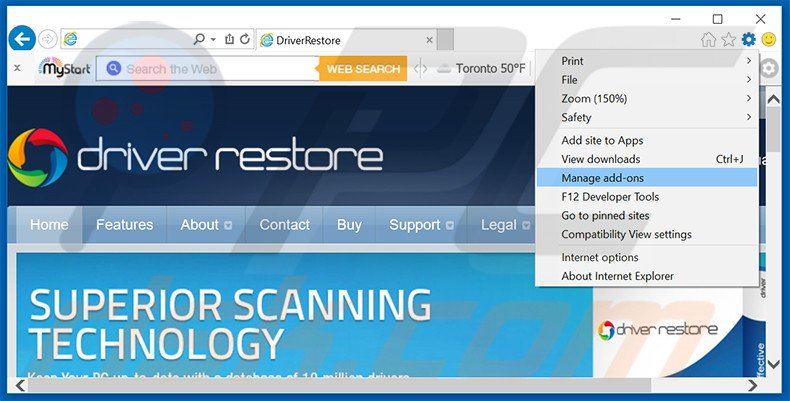
Click the "gear" icon ![]() (at the top right corner of Internet Explorer), select "Manage Add-ons". Look for any recently-installed suspicious browser extensions, select these entries and click "Remove".
(at the top right corner of Internet Explorer), select "Manage Add-ons". Look for any recently-installed suspicious browser extensions, select these entries and click "Remove".
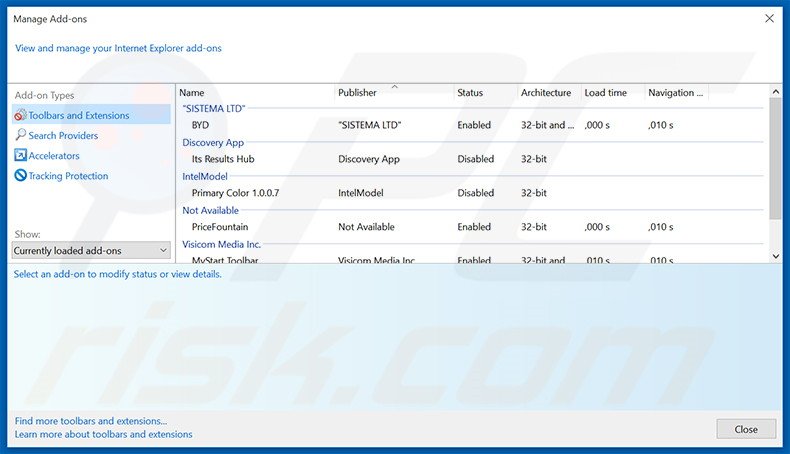
Optional method:
If you continue to have problems with removal of the driver restore potentially unwanted program, reset your Internet Explorer settings to default.
Windows XP users: Click Start , click Run , in the opened window type inetcpl.cpl In the opened window click the Advanced tab, then click Reset .

Windows Vista and Windows 7 users: Click the Windows logo, in the start search box type inetcpl.cpl and click enter. In the opened window click the Advanced tab, then click Reset .
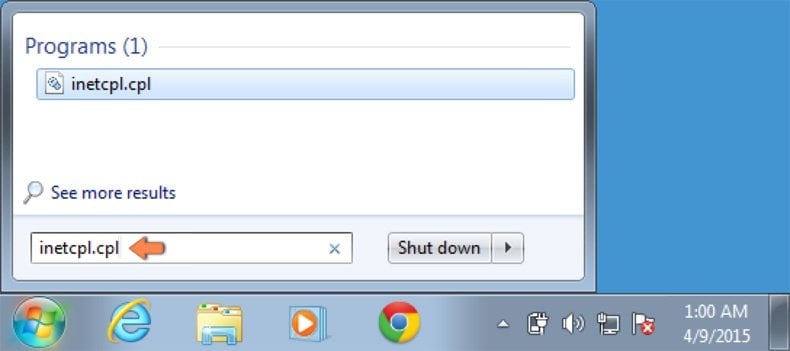
Windows 8 users: Open Internet Explorer and click the gear icon. Select Internet Options .
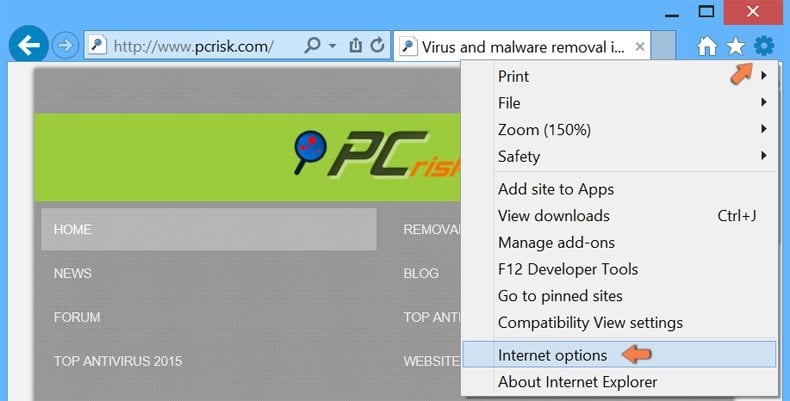
In the opened window, select the Advanced tab.
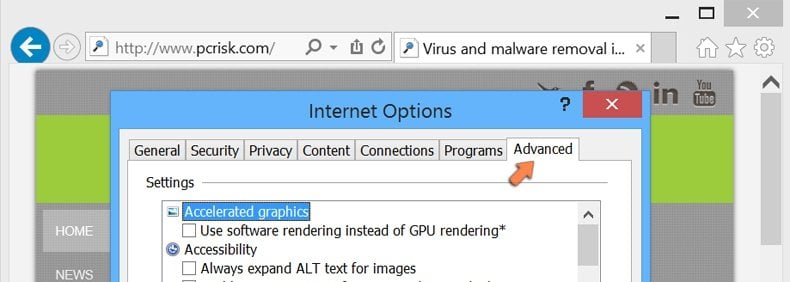
Click the Reset button.

Confirm that you wish to reset Internet Explorer settings to default by clicking the Reset button.
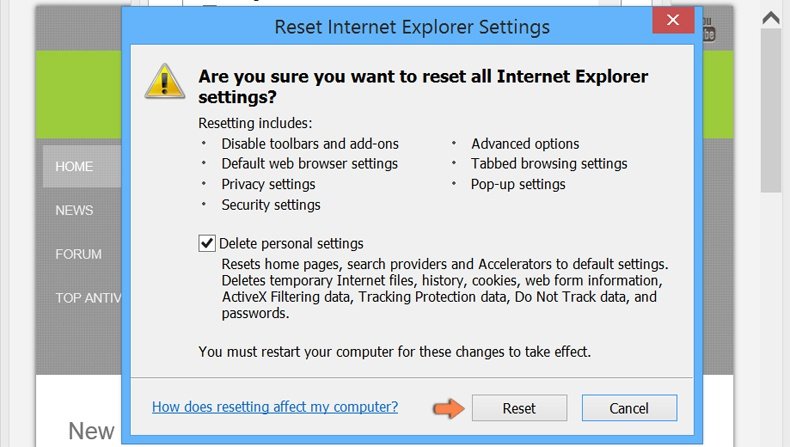
 Remove malicious extensions from Google Chrome:
Remove malicious extensions from Google Chrome:
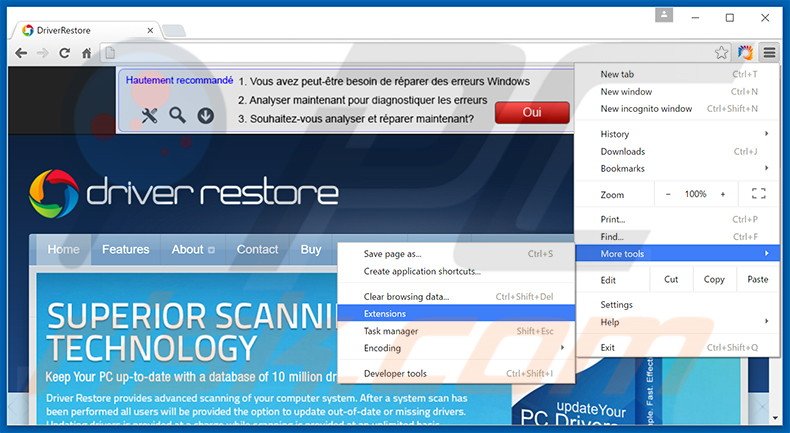
Click the Chrome menu icon ![]() (at the top right corner of Google Chrome), select "Tools" and click "Extensions". Locate all recently-installed suspicious browser add-ons, select these entries and click the trash can icon.
(at the top right corner of Google Chrome), select "Tools" and click "Extensions". Locate all recently-installed suspicious browser add-ons, select these entries and click the trash can icon.
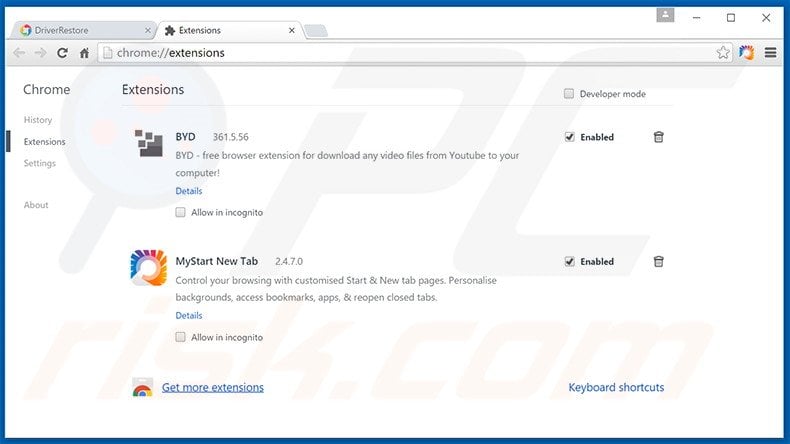
Optional method:
If you continue to have problems with removal of the driver restore potentially unwanted program, reset your Google Chrome browser settings. Click the Chrome menu icon ![]() (at the top right corner of Google Chrome) and select Settings . Scroll down to the bottom of the screen. Click the Advanced… link.
(at the top right corner of Google Chrome) and select Settings . Scroll down to the bottom of the screen. Click the Advanced… link.
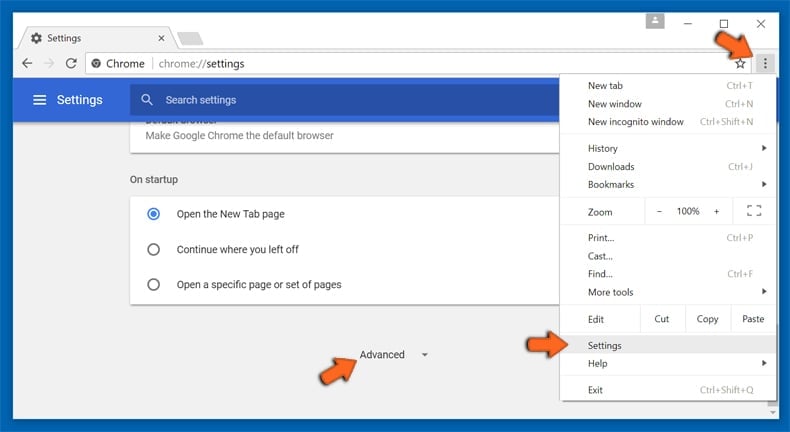
After scrolling to the bottom of the screen, click the Reset (Restore settings to their original defaults) button.
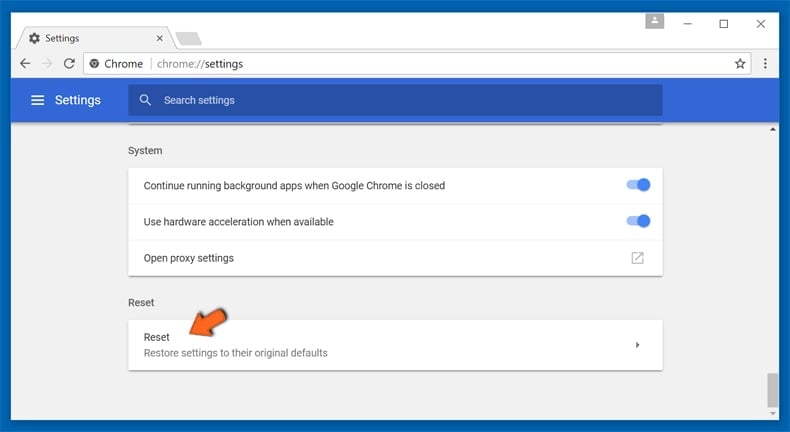
In the opened window, confirm that you wish to reset Google Chrome settings to default by clicking the Reset button.
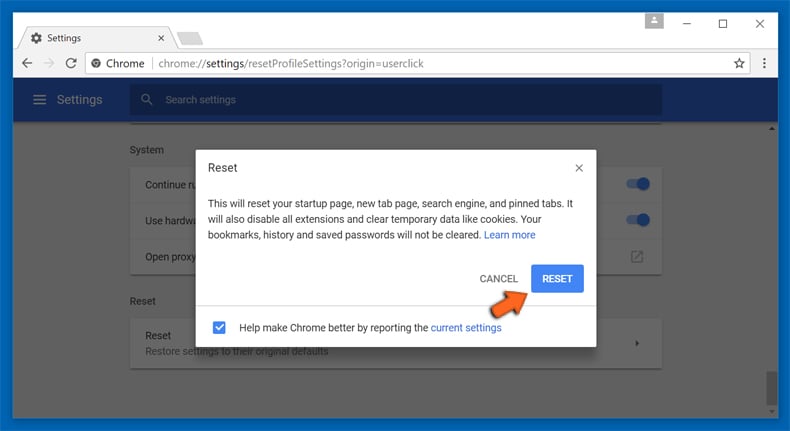
 Remove malicious plug-ins from Mozilla Firefox:
Remove malicious plug-ins from Mozilla Firefox:
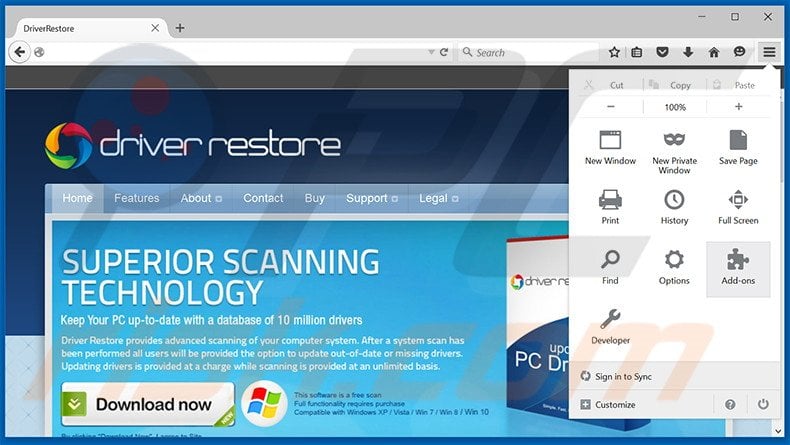
Click the Firefox menu ![]() (at the top right corner of the main window), select "Add-ons". Click "Extensions", in the opened window, remove all recently-installed suspicious browser plug-ins.
(at the top right corner of the main window), select "Add-ons". Click "Extensions", in the opened window, remove all recently-installed suspicious browser plug-ins.
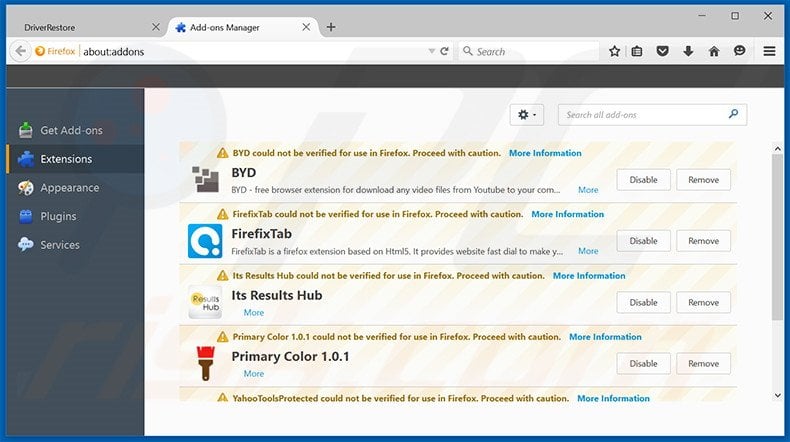
Optional method:
Computer users who have problems with driver restore potentially unwanted program removal can reset their Mozilla Firefox settings.
Open Mozilla Firefox, at the top right corner of the main window, click the Firefox menu , ![]() in the opened menu, click Help.
in the opened menu, click Help.
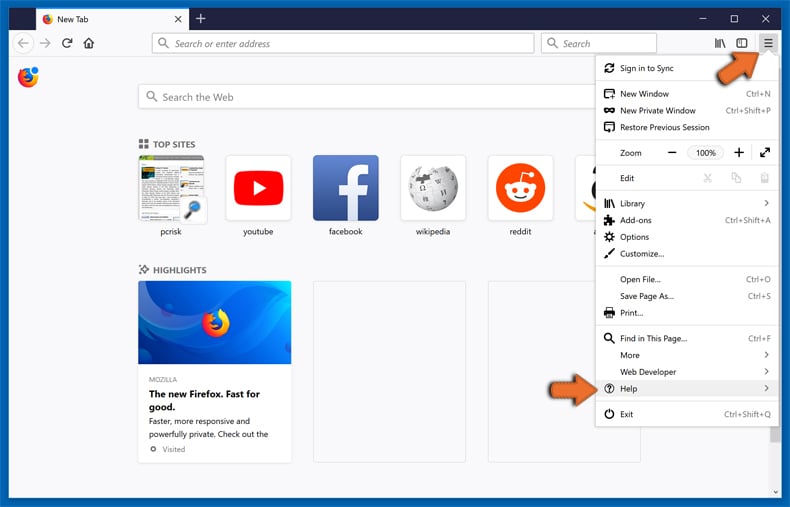
Select Troubleshooting Information .
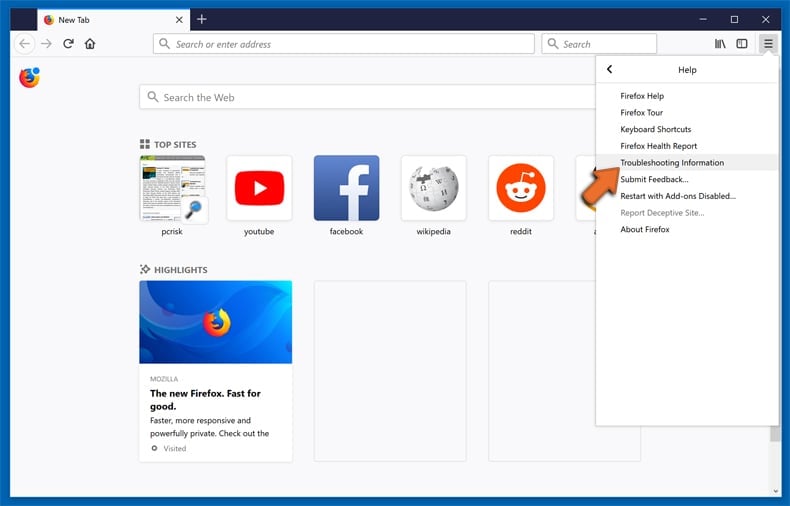
In the opened window, click the Refresh Firefox button.
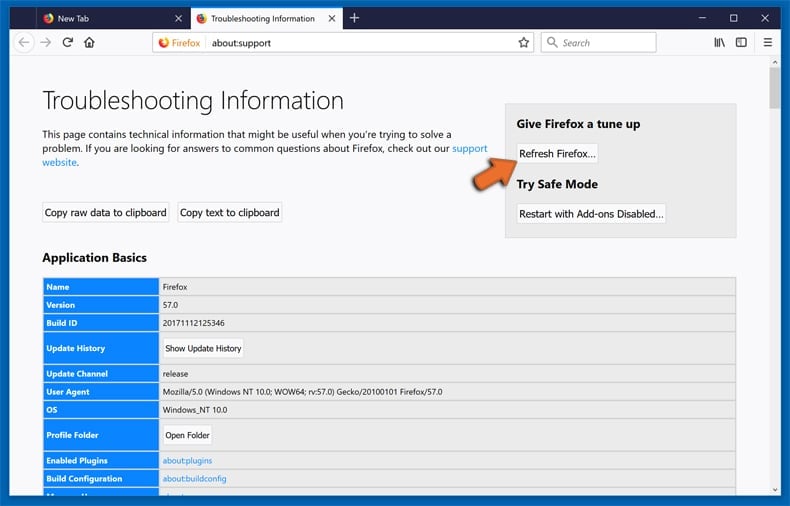
In the opened window, confirm that you wish to reset Mozilla Firefox settings to default by clicking the Refresh Firefox button.
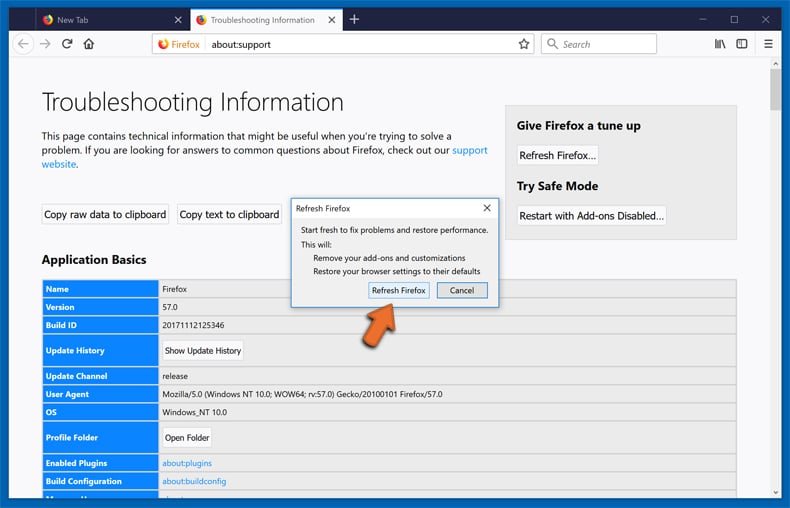
 Remove malicious extensions from Safari:
Remove malicious extensions from Safari:
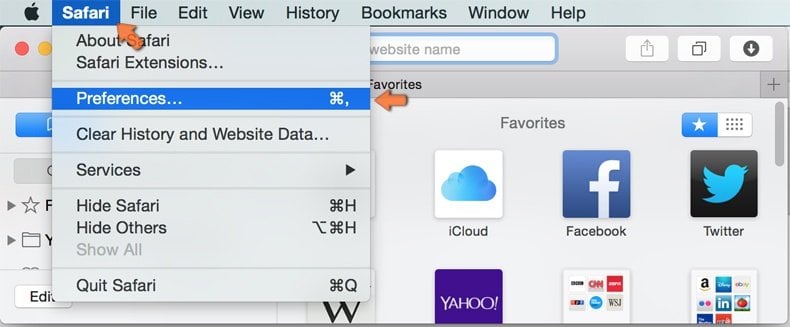
Make sure your Safari browser is active, click Safari menu , and select Preferences... .
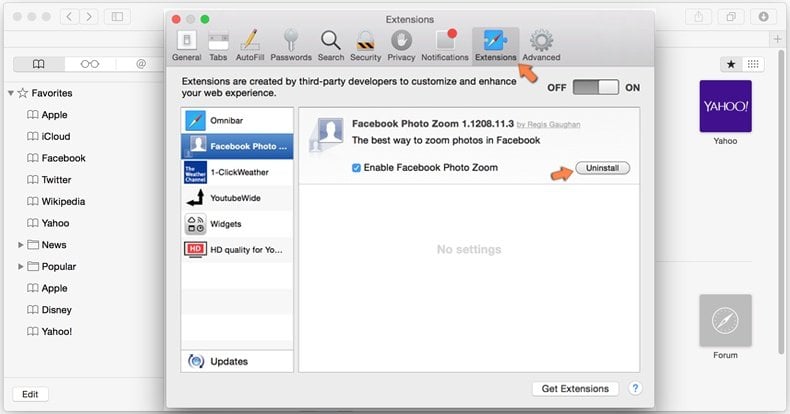
In the opened window click Extensions , locate any recently installed suspicious extension, select it and click Uninstall .
Optional method:
Make sure your Safari browser is active and click on Safari menu. From the drop down menu select Clear History and Website Data...
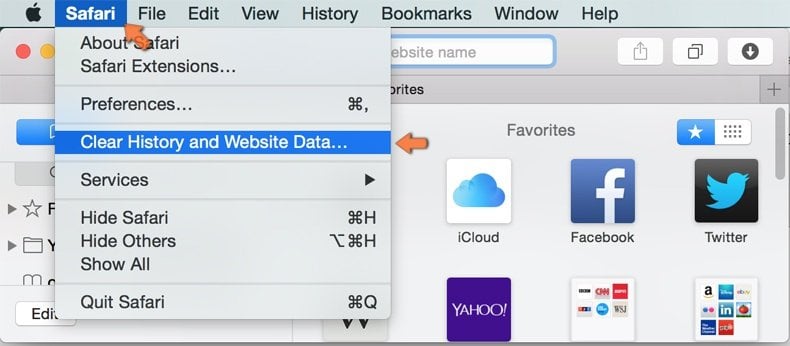
In the opened window select all history and click the Clear History button.
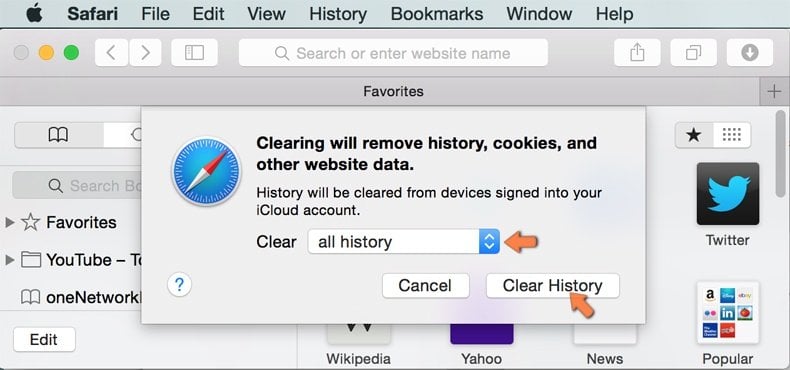
 Remove malicious extensions from Microsoft Edge:
Remove malicious extensions from Microsoft Edge:
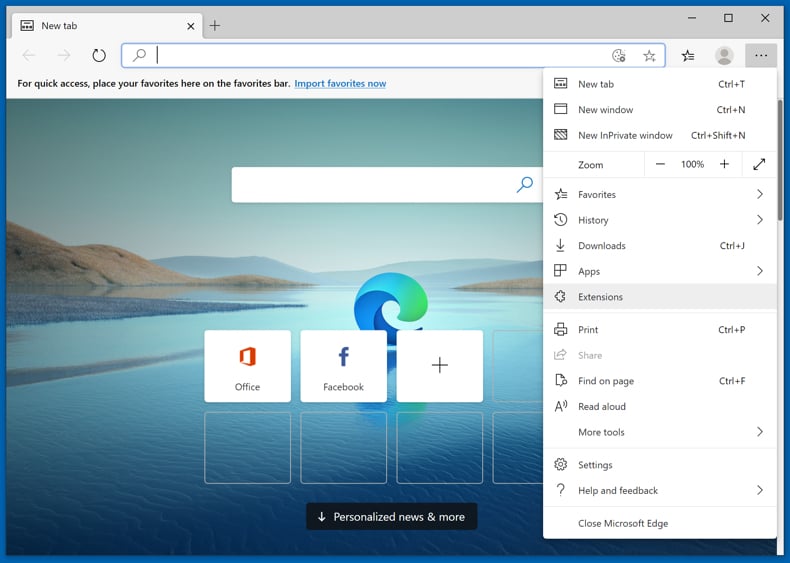
Click the Edge menu icon![]() (at the upper-right corner of Microsoft Edge), select "Extensions". Locate all recently-installed suspicious browser add-ons and click "Remove" below their names.
(at the upper-right corner of Microsoft Edge), select "Extensions". Locate all recently-installed suspicious browser add-ons and click "Remove" below their names.
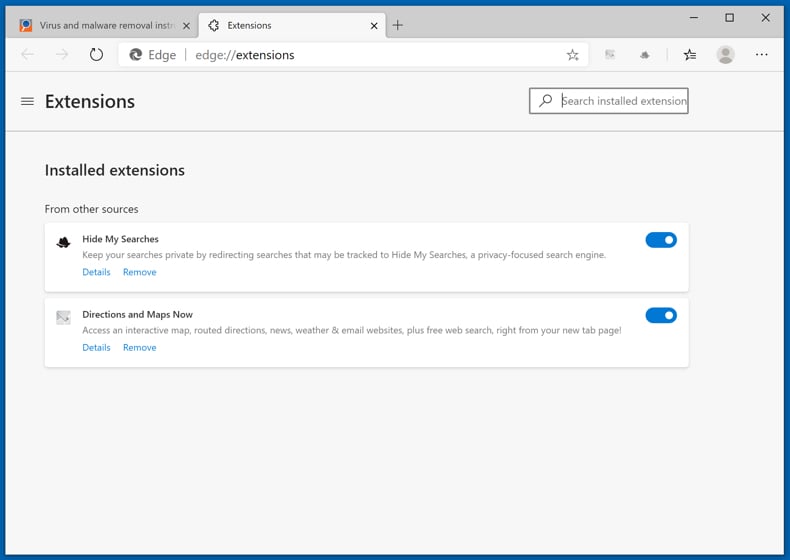
Optional method:
If you continue to have problems with removal of the driver restore potentially unwanted program, reset your Microsoft Edge browser settings. Click the Edge menu icon ![]() (at the top right corner of Microsoft Edge) and select Settings .
(at the top right corner of Microsoft Edge) and select Settings .
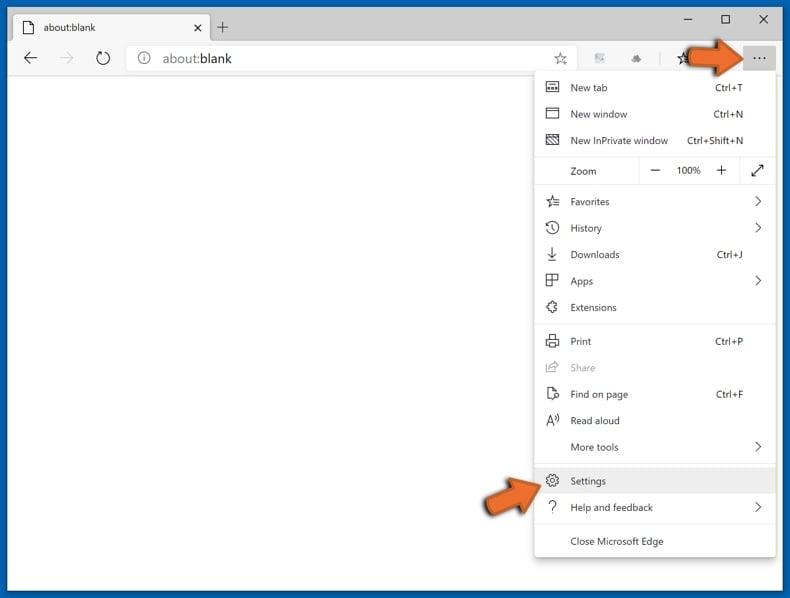
In the opened settings menu select Reset settings .
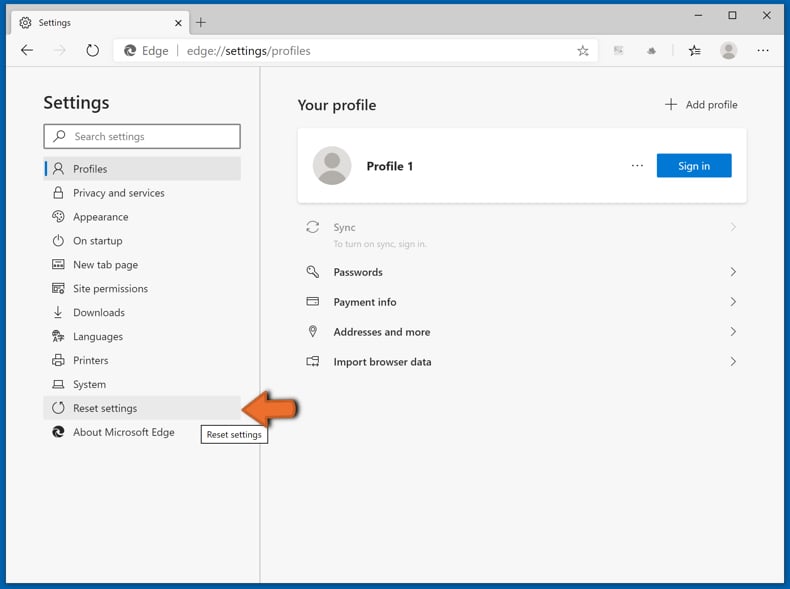
Select Restore settings to their default values . In the opened window, confirm that you wish to reset Microsoft Edge settings to default by clicking the Reset button.
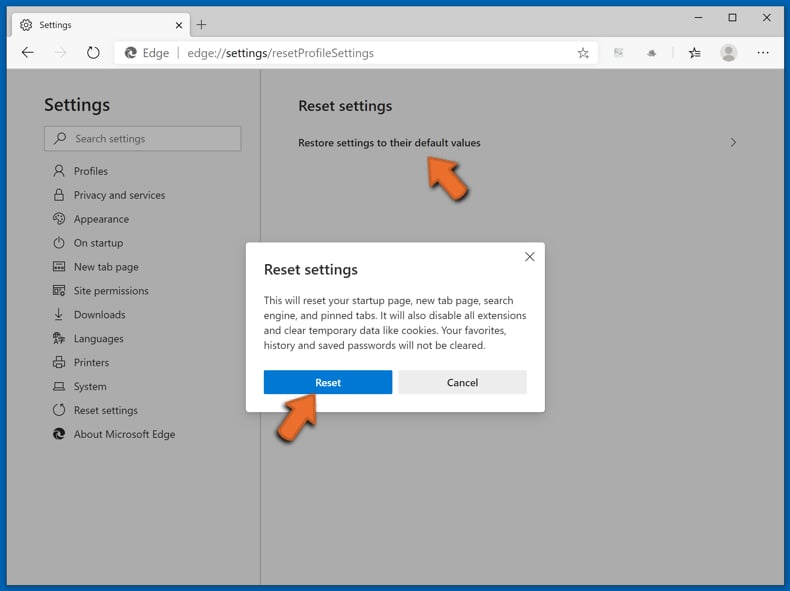
- If this did not help, follow these alternative instructions explaining how to reset the Microsoft Edge browser.
About the author:

Tomas Meskauskas - expert security researcher, professional malware analyst.
I am passionate about computer security and technology. I have an experience of over 10 years working in various companies related to computer technical issue solving and Internet security. I have been working as an author and editor for pcrisk.com since 2010. Follow me on Twitter and LinkedIn to stay informed about the latest online security threats. Contact Tomas Meskauskas.
PCrisk security portal is brought by a company RCS LT. Joined forces of security researchers help educate computer users about the latest online security threats. More information about the company RCS LT.
Our malware removal guides are free. However, if you want to support us you can send us a donation.
How to Get Rid of Driver Restore Windows 10
Source: https://www.pcrisk.com/removal-guides/9693-driver-restore-pup